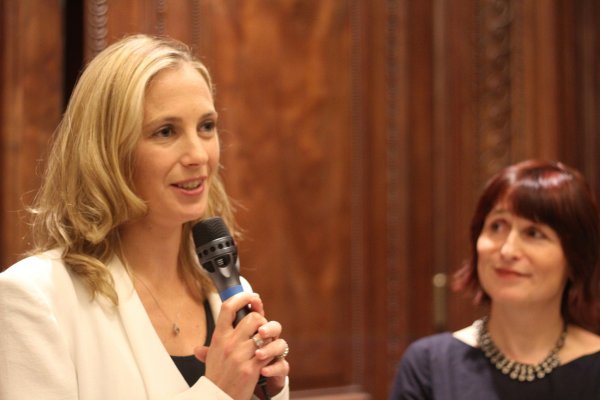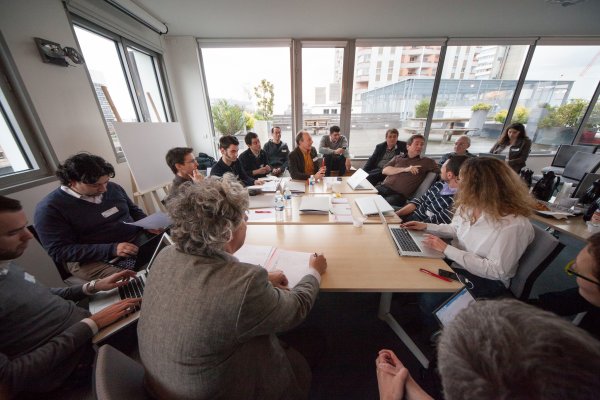Business Culture: The Business Experience
Business Style
The French are passionate about food, art, music, and conversation, and fiercely protective of privacy, individualism, logic, and a strong separation of work and personal life. Many members of the avid and engaged business community, like most of their fellow citizens, are adamantly opposed to anything that threatens to erode the country's unique culture. This opposition can manifest as fear of change—yet both change and cultural exchange inevitably occur at a brisk clip for a country engaged in international business, especially a prominently placed European Union nation such as France. But the retirement of the French franc and its replacement with the euro is still a matter of contention, and the French are divided over issues related to the structure of the central government, education, economics, language, and religion. Thus, the visitor should enjoy, appreciate, and show respect to French culture specifically when interacting with counterparts, and should not be quick to lump French businesspeople in with their neighbors.
Most French businesses are controlled by a strict hierarchy in which education, status, and reputation are paramount; however, everyone in a company will contribute their opinions and impressions during the decision-making process. The government plays a major role in most business transactions, and this can result in strict, lengthy bureaucracy during the negotiation and decision-making processes.
The social rules are different among friends than they are among business associates, although the two categories will eventually begin to blend as a relationship develops between categories. The most important thing for visitors to remember during this process is to take French counterparts' lead in when to behave formally and when to relax a little.
Relationship Building
The French value relationships between business associates and will often dedicate the first few meetings to getting to know their counterparts. Reserved, polite behavior, formal communication and manners, and a refined demonstration of intellectual capacity are essential during this familiarization process. Overly outgoing, friendly, loud, or otherwise invasive behavior is received unfavorably, and personal questions such as "What do you do for a living?" posed to people outside the office setting can cause irritation and offense.
Expect some meetings to carry on over business meals that will begin at midday (12:30pm) or evening (8:30pm) and last several hours, over many courses. Food and wine are art forms, and conversation will often focus on them—demonstrate some knowledge of French cuisine, history, and culture for a favorable impression, or even better, ask to be educated about these topics. Because conversation is another valued skill, be prepared to speak eloquently about your own country, region, and culture.
Many business people in France speak and understand English and other languages, but prefer to speak French. If you know a few key phrases in French, use them. It demonstrates a commitment to establishing a long-term relationship. If you know a less advanced level of French, it is a nice gesture to try to speak the language, but your French counterparts will likely note your effort, and then request that you communicate in English or another language that you have in common, if possible. If you don't know how to speak French, offer an apology for not knowing the language—this is an important step in forming a relationship.
Communication is direct and can become spirited, but not confrontational. Although the flavor of business communication if formal, there is less personal space and more physical touching than in some other cultures. It is not unusual to touch each other's shoulders or to pat a colleague's arms. When offered a compliment, simply answer, "That is nice of you to say."
Etiquette
Business greetings are formal in nature. A medium-firm handshake and brief eye contact are most appropriate. Greet everyone in the room when arriving and leaving. Address your business associates by their family names and honorific titles (Monsieur or Madame) until invited to do otherwise. French contains formal and informal modes of address: address your counterparts politely as "vous" ("you"). Colleagues who have worked together for a long time use the less formal "tu" ("you") once they are invited to use given names. However, even once invited to use a business associate's given name in private, revert to the more formal address in public.
Present business cards to the receptionist upon arrival to an office and to each person you are meeting with. The cards can be in English or French or both, and should include formal academic degrees or titles.
When gifts are appropriate, choose flowers (but not chrysanthemums, roses, or lilies), high-quality wine, or a coffee-table book about your own region. Never give a gift with a company logo. Gifts are usually opened when they are received, and flowers are often sent ahead of time.
France is one of the world's fashion centers—always dress appropriately and err on the side of conservatism. Choose dark, well-cut, stylish suits for men and women and remember that "casual" means high-end boutique business casual.
Sit up straight in your chair with legs crossed at the knee, or knees together. Do not yawn, stretch, chew gum, or place your hands in your pockets in public. Slapping your open palm over a closed fist is considered a vulgar gesture, as is pointing, and the "OK" sign made with the index finger and thumb means "zero" in France—the French use a thumbs- up gesture to convey that all is well.
Article written for World Trade Press by Jessica Kirby.
Copyright © 1993—2025 World Trade Press. All rights reserved.

 France
France 



